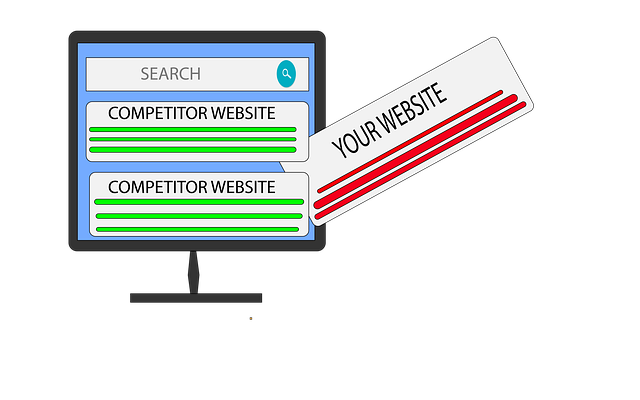In the competitive digital e-commerce landscape, AI tools are transforming online shopping experiences by understanding natural language and context, delivering precise and personalized product recommendations. These tools enhance user satisfaction, boost conversion rates, and increase average order values through advanced search functionalities like semantic search and NLP. Integrating AI into platforms like Shopify, WooCommerce, and Magento offers businesses valuable insights into consumer behavior, optimizing inventory and marketing strategies. While implementing AI presents challenges such as data privacy concerns, successful case studies show substantial sales increases and reduced return rates, demonstrating its game-changing potential in e-commerce search.
In today’s digital era, enhancing e-commerce search experiences is paramount for driving sales and customer satisfaction. Understanding the need for AI in e-commerce search is more crucial than ever, as businesses seek to provide relevant, personalized results amidst vast product catalogs. This article explores various AI tools for e-commerce, delving into types of AI plugins and apps, seamless integration with existing platforms, benefits and challenges, and successful case studies. Discover how AI is revolutionizing online shopping experiences.
- Understanding the Need for AI in E-commerce Search
- Types of AI Tools for Enhancing E-commerce Search Experiences
- Integrating AI Plugins and Apps with Existing E-commerce Platforms
- Benefits and Challenges of Implementing AI in E-commerce Search
- Case Studies: Successful AI E-commerce Search Implementations
Understanding the Need for AI in E-commerce Search

In today’s digital era, where e-commerce platforms are thriving and consumer expectations are soaring, enhancing the online shopping experience has become a top priority for businesses. This is where ai tools for ecommerce search step in as game-changers. Traditional search functionalities often fall short in delivering relevant results, especially with vast product catalogs and complex customer preferences. Artificial Intelligence offers a solution by providing sophisticated algorithms that can understand natural language queries and contextual clues, ensuring a more accurate and personalized search experience.
AI-powered search tools for e-commerce offer numerous advantages. They can analyze customer behavior patterns, historical searches, and purchase data to predict and suggest products tailored to individual preferences. This not only improves user satisfaction but also increases sales potential. Additionally, these tools can handle ambiguous or misspelled queries, reducing frustration and guiding customers towards their desired items efficiently. As the competition in the online marketplace intensifies, embracing AI technology becomes crucial for retailers to stay competitive and provide an exceptional shopping journey.
Types of AI Tools for Enhancing E-commerce Search Experiences

In the dynamic landscape of e-commerce, providing an exceptional search experience is paramount to driving sales and fostering customer loyalty. Artificial intelligence (AI) tools for ecommerce have emerged as game changers, revolutionizing the way customers interact with online stores. These AI solutions offer advanced functionalities such as semantic search, natural language processing, and personalized product recommendations, significantly enhancing user satisfaction and conversion rates.
Semantic search capabilities enable these tools to understand customer queries on a deeper level, going beyond simple keyword matching. Natural language processing (NLP) further refines the search process by interpreting intent and context, ensuring that customers find precisely what they’re looking for. Additionally, AI-driven personalized product recommendations not only cater to individual preferences but also increase average order values by suggesting relevant upsells and cross-sells.
Integrating AI Plugins and Apps with Existing E-commerce Platforms

Integrating ai tools for ecommerce into existing platforms is a seamless process, offering businesses an efficient way to enhance their online stores. Many popular e-commerce platforms like Shopify, WooCommerce, and Magento have embraced AI technology and provide direct integrations with advanced search plugins. These plugins leverage natural language processing (NLP) to understand customer queries, delivering more accurate and relevant product suggestions.
By adding these AI tools, retailers can transform their search functionality, providing a personalized shopping experience. Customers benefit from faster results, while businesses gain valuable insights into consumer behavior, enabling them to optimize inventory and marketing strategies accordingly.
Benefits and Challenges of Implementing AI in E-commerce Search

Implementing Artificial Intelligence (AI) in e-commerce search offers a myriad of benefits, enhancing both the user experience and business operations. ai tools for ecommerce, such as natural language processing and machine learning algorithms, enable more accurate and relevant product searches. These technologies understand user intent behind queries, providing results that closely match what customers are truly looking for. This not only boosts sales by increasing customer satisfaction but also reduces search time, encouraging users to browse more and make purchases impulsively.
However, challenges exist in integrating AI into e-commerce search. Data privacy and security concerns top the list, as AI models rely on vast amounts of user data for training and accurate predictions. Ensuring that sensitive customer information is handled securely and ethically is crucial. Additionally, maintaining model accuracy over time can be demanding, as product catalogs grow and consumer preferences evolve. Businesses must continuously update and retrain their AI models to reflect these changes, requiring significant resources and expertise in data management and machine learning.
Case Studies: Successful AI E-commerce Search Implementations

Many e-commerce businesses have witnessed significant growth and improved customer satisfaction by implementing AI tools for ecommerce search. Case studies reveal that intelligent search functionalities, powered by natural language processing (NLP), machine learning (ML), and deep learning algorithms, can revolutionize online shopping experiences. For instance, a leading fashion retailer enhanced its search capabilities by integrating an AI-driven platform, resulting in a 25% increase in sales within the first quarter of deployment. The system could understand complex queries, provide relevant product suggestions, and even predict customer preferences based on browsing history.
Another successful implementation was seen in a furniture e-commerce platform, where an AI search tool reduced return rates by 30%. By leveraging contextual information and user intent, the plugin offered personalized product recommendations, improving conversion rates. This approach not only enhanced customer satisfaction but also streamlined inventory management for the retailer. These examples highlight how AI tools for ecommerce search can drive business success, offering both efficient operations and an elevated user experience.
AI tools for e-commerce are transforming online retail by offering smarter, more personalized search experiences. By leveraging machine learning and natural language processing, these AI plugins and apps can significantly enhance product discoverability, drive conversions, and foster customer loyalty. As e-commerce continues to evolve, integrating AI into search functionality will become increasingly vital for businesses aiming to stay competitive in the digital marketplace.
